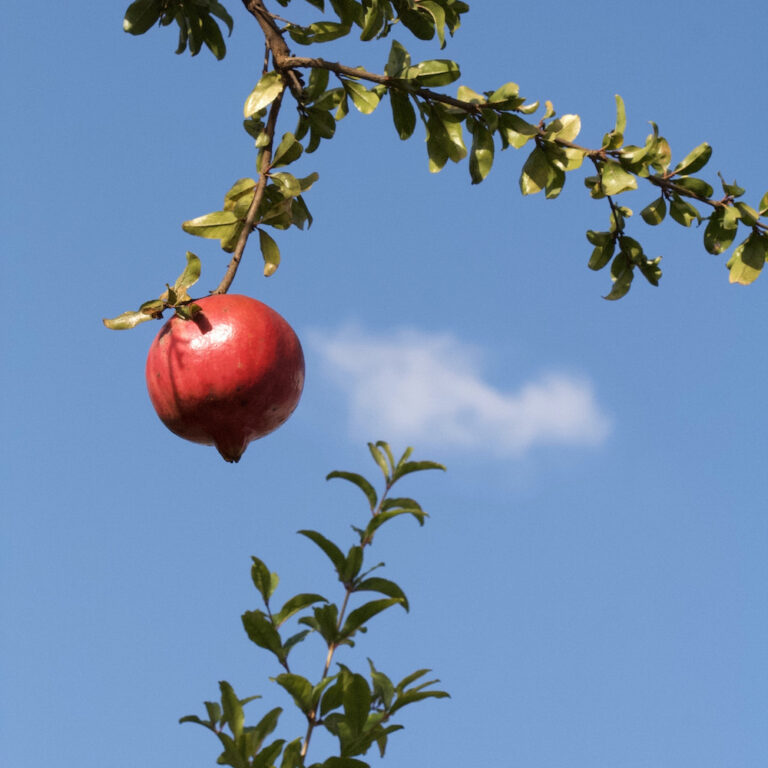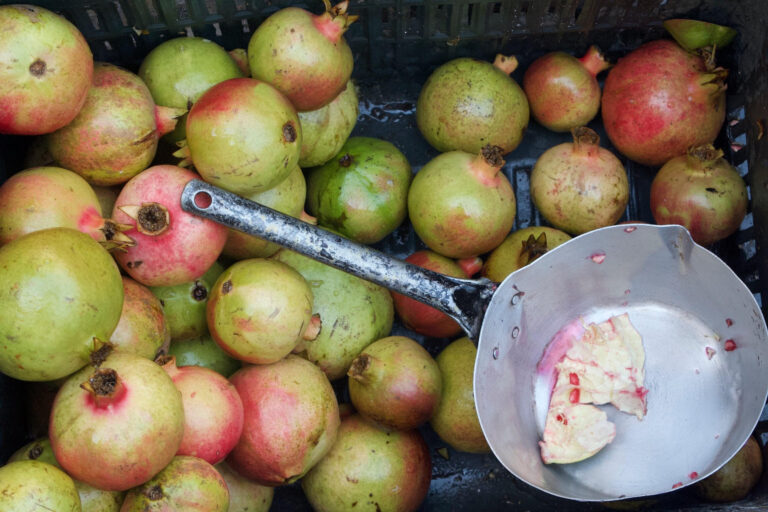the taste of pomegranate molasses
it's special
Pomegranate molasses has a special place in our business. On a visit to Lebanon in 2018, we bought a bottle from the Souk el Tayyeb, Beirut’s famous farmers’ market. It was made by a one-woman producer from the south, whose small stall sold just a few things. In pride of place stood her homemade pomegranate molasses. Although we already had far too much stuffed into our suitcases, we knew that buying it would make a difference to her and to us. Yet another bottle would have to be stealthily hidden and swaddled in badly packed clothes. It was worth it. Just a teaspoon or two made all the difference to so many of our dishes. Until it was dropped on an unforgiving kitchen floor during lockdown.

the real thing
Without being able to go back to Beirut, nothing we bought in the UK was the real thing: sour pomegranate juice slowly thickened to a dark tangy syrup. So it was one of the first things we looked for when launching our business – and found, in Zejd’s pomegranate molasses.
no added sugar
In Chekaa, where Youssef Fares, owner producer of Zejd sources the pomegranate molasses from, they don’t add sugar. The juice from the sour green skinned pomegranate is balanced with some from a sweeter variety with a dark red skin. The tradition of bottling to preserve the abundance of the harvest has a word all of its own in Lebanon, “mouneh“. Reducing the juice of pomegranates to make molasses, provides households with a sharp yet sweet addition to foods and salads when lemons aren’t available. Next time you see a bottle, check the label to see if there is any added sugar!

health benefits
It’s the high antioxidant content which has caused interest over the years. According to a study from 2012 carried out by the Faculty of Medical Sciences at the Lebanese University, they found ” the polyphenols in molasses are 4 times greater than those found in the juice”. Heating the juice for 6 hours allows the polyphenols to be released from the pomegranate fruit cells. Lebanese dietician Nicole Maftoum, points out that its antioxidant content is “two or three times higher than that of red wine”.
native to Lebanon
One of the oldest edible fruits to be cultivated in Lebanon, it requires little water. Pomegranates are tolerant of heavy and saline soils, so grow near the coast and up to an altitude of 1100m. Not expensive to farm, relatively problem free, it’s a crop which offers promise to Lebanon. As weather patterns are changing the world over, Lebanese farmers are fortunate to have a plant with such a long history of cultivation in Lebanon to withstand severe weather changes.
For ideas on how to use pomegranate molasses in your cooking, see our recipe index.